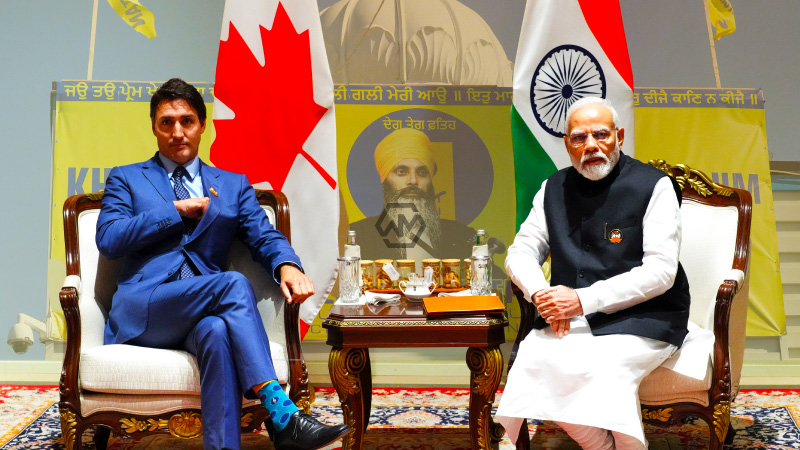- The execution of Khalistan terrorist Hardeep Singh Nijjar has been linked to India.
- India has refuted the allegations and said it has not given any particular information regarding them.
- A senior Indian ambassador was expelled from Canada on Monday as part of an investigation into the murder of Najjar.
The execution of Khalistan terrorist Hardeep Singh Nijjar has been linked to India, according to “credible allegations” made by Justin Trudeau, the prime minister of Canada. India has refuted the allegations and said it has not given any particular information regarding them, despite reports that Canada gave information about the allegations to New Delhi “weeks ago.”
As diplomatic tensions between the two nations increased, New Delhi and Ottawa both took diplomatic measures, and India suspended its visa services to Canada.
Nijjar’s murder
By executing Khalistani terrorist Nijjar in Vancouver, Indian spies, according to Trudeau‘s assertion, were involved. India, though, brushed off the accusations as “absurd and motivated.”
Due to the resulting diplomatic tensions, India suspended its Canadian visa services, and Ottawa and New Delhi both took diplomatic action.
On June 18, a gunman shot and killed Hardeep Nijjar, an Indian terrorist, outside a Sikh temple in Surrey, British Columbia. As a result of the threats made by radical forces, Liberal Party MP Chandra Arya expressed concern for the safety of Hindu Canadians.
Despite a briefing with the head of the Canadian Security Intelligence Service (CSIS) that he described as frustrating because there wasn’t more specific information, British Columbia Premier David Eby has claimed that the federal government is “holding back” information on the killing of Khalistani terrorist Hardeep Singh Nijjar.
Abdul Momen, the foreign minister of Bangladesh, has expressed optimism for a peaceful resolution to the diplomatic dispute, calling it a tragic incident. Because they don’t act immaturely and have a strong relationship with India built on values and ideals, he thinks India should be proud of itself.
The US, Australia, Canada, New Zealand, the United Kingdom, and the Five Eyes alliance were all established in 1941. These nations have ratified the multilateral UK-USA Agreement, which establishes a framework for cooperation in the signals intelligence field.
While asserting that Ottawa has not provided any concrete material to support their claim that India was involved in the murder of Khalistani leader Hardeep Singh Nijjar, India has also urged Canada to take action against pro-Khalistan individuals linked to organized crime who are targeting Indian diplomats.
A senior Indian ambassador was expelled from Canada on Monday as part of an investigation into the murder of pro-Khalistan terrorist Hardeep Singh Nijjar on Canadian soil. According to Trudeau, there are “credible allegations of a potential link” between Indian government personnel and the murder of the Khalistani terrorist.



